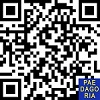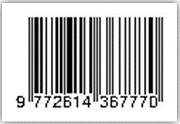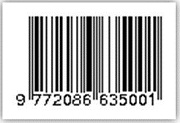BABBEL APPLICATION TO IMPROVE STUDENTS' VOCABULARIES
Abstract
Abstrak: Penelitian ini bertujuan untuk mengetahui efektivitas penggunaan aplikasi Babbel untuk meningkatkan kosa kata siswa di kelas X di SMA Negeri 1 Gowa. Penelitian ini menggunakan metode penelitian quasi-experimental. Partisipan dalam penelitian ini adalah dua kelas yang terdiri dari 80 siswa yang terbagi dalam kelompok kontrol dan eksperimen. Kedua kelompok diuji sebelum dan sesudah perlakuan, tes meliputi pre-test dan post-test yang terdiri atas 50 item soal sebagai alat ukur. Hasil penelitian menunjukkan bahwa terdapat perbedaan yang signifikan antara nilai rata-rata post-test kedua kelompok, nilai rata-rata kelompok kontrol sebesar 60.25, sedangkan nilai rata-rata kelompok eksperimen sebesar 80.35. Selanjutnya pada uji t, nilai signifikansi kelompok eksperimen melebihi kelompok kontrol, nilai signifikansi kelompok eksperimen sebesar .000, sedangkan nilai signifikansi kelompok kontrol sebesar 1.75. Berdasarkan hasil penelitian disimpulkan bahwa penggunaan aplikasi Babbel efektif meningkatkan kosakata siswa kelas X di SMA Negeri 1 Gowa bila dibandingkan dengan metode konvensional.
Abstract: This research aims to examine the effectiveness of the Babbel application to improve the students vocabularies of class X at SMA Negeri 1 Gowa. This study used a quasi-experimental research method. Participants in this study were two classes consisting of 80 students divided into control and experimental groups. Both groups were tested before and after treatment, the tests included a pre-test and post-test which consisted of 50 items as a measuring tool. The results showed that there was a significant difference between the post-test average scores of the two groups, the control group's average score was 60.25, while the experimental group's average score was 80.35. Furthermore, in the t test, the significance value of the experimental group exceeded the control group, the experimental group's significance value was .000, while the control group's significance value was 1.75. Based on the research results, it is concluded that the use of the Babbel application is effective in increasing the students vocabularies of class X at SMA Negeri 1 Gowa compares to conventional methods.Keywords
References
Alqahtani, M. (2015). The importance of vocabulary in language learning and how to be taught. International Journal of Teaching and Education, III(3), 21–34. https://doi.org/10.20472/TE.2015.3.3.002
Ana, I. K. T. A. (2018). Teaching English Vocabulary for Young Learners through Electronic Guessing Game. Journal of Psychology and Instructions, 2(1), 22. https://doi.org/10.23887/jpai.v2i1.13738
Bakti, K. N. N. (2017). Vocabulary Learning Strategies Used by Junior High School Students. Journal of Educational Study, 3(2), 16.
Barata, P. T. (2020). American English and British English: Vocabulary and Grammar Differences. Journal of Language Intelligence and Culture, 1(03), 224–237. https://doi.org/10.35719/jlic.v1i03.26
Dakhi, S., & Fitria, T. N. (2019). The Principles and the Teaching of English Vocabulary: A Review. JET (Journal of English Teaching), 5(1), 15. https://doi.org/10.33541/jet.v5i1.956
Devanti, Y. M., & Amalia, A. R. (2018). The Use of Video as a Media to Improve Students’ Vocabulary Mastery. ELLITE: Journal of English Language, Literature, and Teaching, 3(azuren), 42. https://doi.org/10.32528/ellite.v3i1.1778
Hariadi, inzta, & Amir, Zainuddin. (2014). Teaching English Vocabulary Through K.I.M (Key Word, Information, And Memory Clue) Vocabulary Strategy In Junior High School. JELT, 2(2), 112–119.
Hussain, Z. (2018). The Effects Of Ict-Based Learning On Students’ Vocabulary Mastery In Junior High Schools In Bandung. International Journal of Education, 10(2).
Imran, M. C., & Nasaruddin. (2021). Using Kids Coloring Fun Application to enhance Children Vocabulary Mastery at Tumbuh Kembang Kindergarten. DIDAKTIKA, 10(3), 6.
Lube, C. I., & Nuraeni, S. (2020). Improving English Vocabulary Mastery Through Word Game. PROJECT (Professional Journal of English Education), 3(1), 109. https://doi.org/10.22460/project.v3i1.p109-113
Mafruudloh, N., Arifatin, F. W., & Chasanah, U. (2021). The Role Of Technology In Online Learning: An Examintation Towards English Teachers’ Perception And Pratices. PROJECT (Professional Journal of English Education), 4(2), 267. https://doi.org/10.22460/project.v4i2.p267-277
Mills, G. E., & Gay, L. R. (2019). Educational research: Competencies for analysis and applications (Twelfth edition). Pearson.
Mokodompit, R. N., Samola, N. F., & Tuerah, J. C. (2021). Students’ Perception Of Using Youtube In Vocabulary Mastery. Journal of English Language and Literature Teaching, 5(2). https://doi.org/10.36412/jellt.v5i2.2456
Mozes, G. N. (2020). The Influence Of Youtube On English Vocabulary For Children 7-8 Years Old. Epigram, 17(2), 119–124. https://doi.org/10.32722/epi.v17i2.3458
Nasution, A. K. R. (2019). YouTube as a Media in English Language Teaching (ELT) Context: Teaching Procedure Text. Utamax : Journal of Ultimate Research and Trends in Education, 1(1), 29–33. https://doi.org/10.31849/utamax.v1i1.2788
Nurhikmah, N., Hakim, A., Kuswandi, D., Sulfianti, S., & Sujarwo, S. (2021). Developing Online Teaching Materials for Science Subject During Covid-19 Era. Jurnal Pendidikan: Teori, Penelitian, Dan Pengembangan, 6(8), 1198. https://doi.org/10.17977/jptpp.v6i8.14947
Salawazo, I. S., Simbolon, M., Hutabarat, V. E., Veronika, A. N., & Saragih, E. (2020). Analysis of Students’ Vocabulary in Learning English. Linguistic, English Education and Art (LEEA) Journal, 3(2), 469–475. https://doi.org/10.31539/leea.v3i2.1017
Santoso, I., & Andriyadi, A. (2019). The Use Of My Dictionary Application To Improve Students’ Vocabulary Mastery. ELTIN JOURNAL, Journal of English Language Teaching in Indonesia, 7(1), 35. https://doi.org/10.22460/eltin.v7i1.p35-42
Sihotang, R., Afriazi, R., & . I. (2017). Vocabulary Learning Strategies Applied By The Students Of English Education Study Program Of Bengkulu University. Journal of English Education and Teaching, 1(1), 86–95. https://doi.org/10.33369/jeet.1.1.86-95
Solikhah, N. A. (2020). Improving Students’ Motivation In English Vocabulary Mastery Through Mobile Learning. Wanastra: Jurnal Bahasa Dan Sastra, 12(1), 73–78. https://doi.org/10.31294/w.v12i1.7537
Susanto, A. (2017). The Teaching Of Vocabulary: A Perspective. Jurnal KATA, 1(2), 182. https://doi.org/10.22216/jk.v1i2.2136
Tohe, A., Aliyudin Al-Ayubi, M., & Maksum, A. (2019). Developing an Android-based Screen Lock Application for Arabic Vocabulary Enrichment of the Tenth Graders at the Madrasah Aliyah. KnE Social Sciences.
DOI: https://doi.org/10.31764/paedagoria.v14i2.12979
Refbacks
- There are currently no refbacks.
Copyright (c) 2023 Muhammad Chairil Imran

This work is licensed under a Creative Commons Attribution-ShareAlike 4.0 International License.
Paedagoria : Jurnal Kajian, Penelitian dan Pengembangan Kependidikan
Fakultas Keguruan & Ilmu Pendidikan | Universitas Muhammadiyah Mataram.
_______________________________________________
 | Paedagoria : Jurnal Kajian, Penelitian dan Pengembangan Kependidikan |
______________________________________________
CURRENT INDEXING:
. .
.
EDITORIAL OFFICE:
















